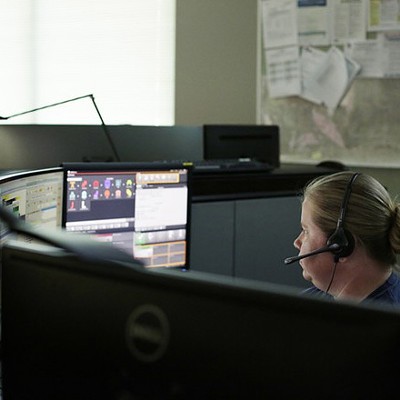
More than five years ago, Luae Benlitifah decided he wanted to open a group home for kids with disabilities or behavior issues.
He knew it needed to be located where they could access the resources they need. But the home also needed to be where the cost of living was low. That ruled out the Seattle area, he says. Instead, he chose to open a home in Spokane.
"For me to help kids get resources, and for their educational needs, it's a lot easier and it's very beneficial for them [in Spokane]," Benlitifah says.
Benlitifah, as program manager for Excel Supported Living, manages four group homes for kids. Many kids come from outside Eastern Washington to live in the group homes and now attend school in Spokane Public Schools.
Benlitifah is not the only one who recently opened up a group home in Spokane. In the five years since Benlitifah started Excel Supported Living, the number of group home providers has increased from six in 2013-14 up to 17 today, with many providers managing multiple homes, according to data from Spokane Public Schools.
That means more kids with special needs are moving to Spokane. The number of out-of-district students living in group homes in Spokane Public Schools has nearly doubled to 112 students since 2014-15, according to district data. Nearly three-quarters of those kids are students with special needs, either with a disability or with emotional or behavioral issues.
It's a trend that school officials warn may necessitate greater mental health resources in the community.
"I don't know what that number is where we reach a saturation point where there's not enough resources in the community," says Franklin Day, associate director of special education in Spokane Public Schools.
Group homes typically house five or fewer kids in one place. Some of them provide treatment in the home, while others connect kids with outpatient resources in the community. Many kids living in group homes are in foster care, while others may still be under the care of their parents but sent to a group home for services related to a disability or behavior.
Across the country, however, reports have shown that staying at a group home can have traumatic effects for adolescents in foster care. Just three months ago, in March, the U.S. Office of Inspector General released a report slamming Washington state foster-care group homes: All of those visited failed to meet at least one health and safety requirement. And at larger group care residential facilities, places like Excelsior Youth Center in Spokane, some kids can have trouble reintegrating into society. Often, they went there with severe behavior issues and turn to crime.
But the state is in high demand for placements for foster kids, especially homes that provide Behavior Rehabilitation Services for troubled teens. Kids placed in those homes have severe emotional and behavioral issues, often related to abuse, neglect and trauma. Most of the group home resources for troubled kids in the state are concentrated to select areas — Spokane being one of them, says Norah West, spokeswoman for the Washington State Department of Social and Health Services Children's Administration.
"Most of the group home resources are located within a handful counties in the state — King, Pierce, Snohomish, Thurston, Yakima and Spokane — so these limited resources serve populations from many other areas," West says.
BreakThrough is one of the homes that provides behavioral services to foster kids. And Chris Patterson, the president of BreakThrough, says he's noticed that Spokane is taking more and more kids from outside the area.
"We see kids from everywhere," Patterson says.
The majority of them are in foster care, he says, but not all of them. They go to public school just like everyone else, and they're often admitted into treatment for mental health. The number of kids needing services is increasing, he says. He's already having a hard time finding professionals able or willing to do the work.
"It's gotten to the point where it's very, very in demand," he says.
Whatever type of group home they're in, Patterson says the goal is to get kids to graduate. He tries to keep track of the kids after they leave BreakThrough. Yet, despite the home's best efforts, Patterson admits, "not everyone is a success story."
The rise in group homes in Spokane is significant for the school system, says Day, the Spokane Public Schools associate director of special ed. The district has hired more teachers and support staff to keep up with the demand since the rise in group homes started, for instance.
It also puts the spotlight on Spokane's discipline practices, as the district has reformed its rules in an effort to suspend and expel kids less.
"In behavioral support group homes, every student has some kind of behavioral need. There is an impact on the disciplinary efforts," Day says.
Patterson praises how Spokane Public Schools and Mead School District communicate with BreakThrough when an issue arises. But he acknowledges it's a challenge — he maintains that "kids cannot just walk away with no consequences."
For the school district, the number of students in group homes is small relative to the overall population. Day says the goal is to help them graduate no matter what. Sometimes, the students will stay in the district's transitions program until they're 21, Day says. It's after that when Day hopes they can get the help they often need to prevent homelessness.
He wonders what happens when they're no longer in school or in a group home.
"For most of these students," Day says, "when they become part of a community, they stay as part of that community." ♦



















